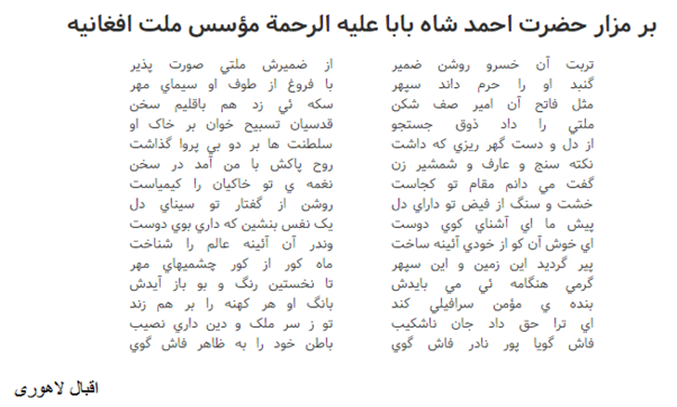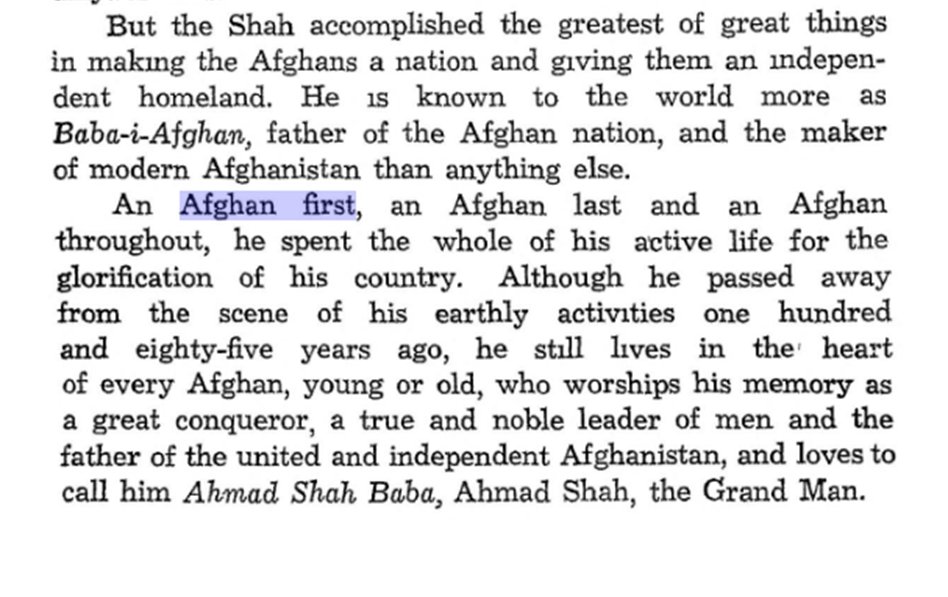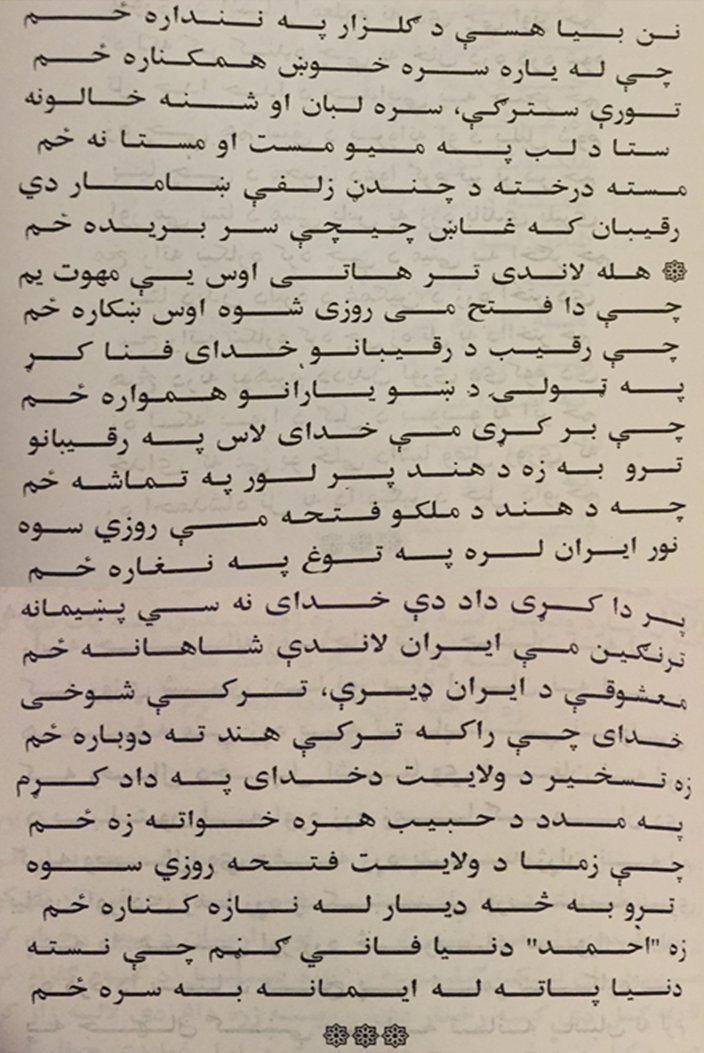#AhmadShahDurrani wrote both prose & poetry mainly in Pashto, but also in Dari/Persian.
He regularly held Majlis-e ulama (“Assembly of the Learned/Scholars”) devoted to divinity, civil law & literature, even when on expeditions.
@DawoodAzami DA 1
He adds the #Shah doesn't have any other love "except the love of #book".
ندارد محبت بغیر از کتاب
@DawoodAzami DA 2
Raverty (1862) described the knowledge/education of the #Shah to be the equivalent of a "Doctor of Literature or Divinity” (p. 289). @DawoodAzami DA 3
#AhmadShahDurrani had been “naturally disposed to mildness & clemency” & “treated Moollahs [clerics] & holy men with great respect.”
He adds the #Shah “was always ambitious of the character of a saint” & that “he was himself a divine & an author”. DA 4
He called him عارف(saint) &خسروروشن ضمير.
Referring to his knowledge &poetry, Iqbal says the #Shah had also conquered the realm of literature/speech. DA5

Hafez Marghuzai wrote his Shahnamah (poetic account of his reign) in #Pashto.
Nizamuddin Ishrat composed “Shahnamah-i Ahmadi” in #Persian.
Both poets had met the #Shah many times.
@DawoodAzami DA 6
This is how Ganda Singh described #AhmadShahDurrani in his book, Ahmad Shah Durrani: Father Of Modern Afghanistan (1959), p.346
@DawoodAzami DA 7

The #Shah's Diwan has been published several times.
Below is one of his poems in #Pashto & a quatrain in #Persian. DA 8 👇







